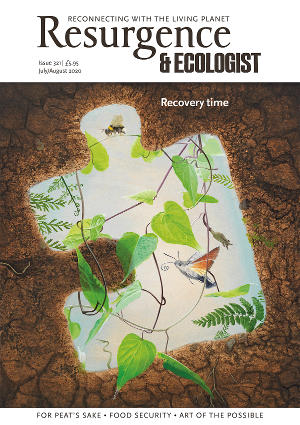“We perceive the human condition as one of multiple entities vying for individual success, rather than all of us being not only equal, but also deeply interlinked in connected systems.” This perception, Tom Oliver argues, is the delusion that gives this book its title, setting into motion a rigorous ode to interdependence rooted as firmly in science as in spirituality.
The first section of the book outlines the argument from a physiological perspective. The science is fascinating, but as a route into Oliver’s central thesis I find it unconvincing. While it is interesting to read about the fact that all of my cells replace at given intervals, this does not exactly mount the philosophical assault on the pronoun ‘I’ that the premise of the book sets us up to expect.
I think if you were to ask most people, they would say that selfhood resides in their mind – not in their legs or their vital organs. The second section of the book steps Oliver’s argument up a gear by looking through a more psychological lens, and rigorously challenges some basic assumptions about the human condition – primarily that there is a fixed ‘you’ somewhere ‘in there’ that is the product of your cumulative life experiences.
By the time we arrive at the final section of the book, which takes on a more social dimension, it becomes clear that Oliver has marshalled this impressive body of science to the purpose of a hitherto hidden political point: that there is no way we’re getting through the century ahead of us if we don’t shake off the delusion of individualism and recognise our interdependence with each other and the wider natural world.
I find the bridge to this from the initial science a bit contrived in places. In the section where Oliver outlines the infrastructure of globalised capital as an example of our interdependence, for instance, it’s hard to see a meaningful link back to microbes in our gut. Is he implying that today’s form of capitalism was an inevitable consequence of our physiology?
His radical commitment to interdependence leads him down some dead ends, perhaps most notably a passage in which he suggests that we are all equally culpable for ecological collapse. And for many it will just be unconscionable to abandon the ‘self’, particularly when it throws up questions like whether people are responsible for their actions, and why, if he is so sure we are effectively one shared organism, he has bothered to put his name on the cover of the book.
That said, it is difficult to disagree with the broad strokes of Oliver’s conclusion. “Just as we have learned to accept the non-intuitive fact that the Earth is not at the centre of the solar system,” he says, “so too must we now accept that we ourselves are not the centre of the universe.”
If there is some innate tendency towards individualism encoded into aspects of our psychology and physiology, Oliver is right to argue that it has been exaggerated in recent decades by politics and culture, and so practical steps we can take to dismantle barriers to seeing ourselves as part of a greater whole should be welcomed. How might we do that? Two specific methods he mentions a few times are practising meditation and taking LSD. I shall leave readers to follow their own preferences.






